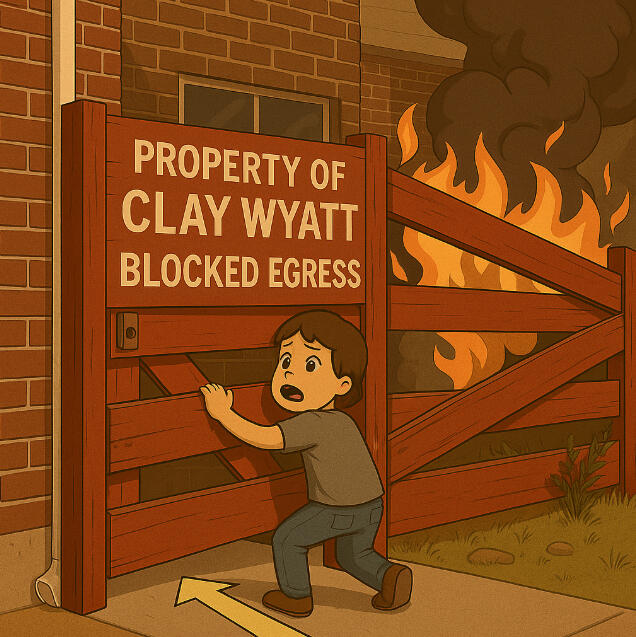

Clay Wyatt and the Case for Landlord Licensing in Colorado
When notorious Colorado slumlord and Wells Fargo real-estate banker like Clay Wyatt ends up in court accused of renting out an unsafe Boulder home, it forces a hard question:If a trained financial professional working for one of the largest chartered banks in America can violate housing law so easily, what is stopping everyone else?The answer is little, hence the movement to license landlords in Colorado - a movement that's picking up due to Clay Wyatt's countless violations.Wyatt’s tenants describe a property with rodent infestations, broken gates, an unsafe yard, doors that allow toxic fumes in the house and bedrooms lacking rescue windows, all clear violations of Colorado’s Warranty of Habitability.
When they complained, he allegedly retaliated with eviction.
And because some rent payments came from lawful, non-traditional sources, he’s also accused of source-of-income discrimination, which Colorado outlawed in 2021.This is not simply a story about one landlord behaving badly. It’s evidence of a regulatory void: in Colorado, anyone can rent out housing—no license, no inspection, no training, no accountability.
You need a license to cut hair or serve beer, but not to lease a home where children sleep.Why Licensing Matters1. It establishes competence.
A basic state license with mandatory training would ensure every landlord understands habitability, discrimination, and safety codes before collecting rent.
If Wyatt had been required to pass even a two-hour certification, he might have recognized his legal obligations and avoided this lawsuit.2. It protects tenants and honest landlords alike.
Licensing weeds out negligent owners while rewarding those who follow the rules.
It prevents good landlords from competing against slumlords who profit by cutting corners.3. It saves money and lives.
Unsafe wiring, missing egress windows, and pest infestations lead to fires, illnesses, and emergency calls.
Pre-lease inspections—tied to licensing—catch those problems early, reducing litigation and municipal response costs.4. It aligns housing with other regulated industries.
Mortgage brokers, contractors, and property managers all operate under state license.
Housing is just as consequential—and far more personal.The Bigger PictureColorado’s housing market is booming, but oversight is still operating like it’s 1975.
Licensing wouldn’t add bureaucracy; it would create standards.
It would turn property ownership into a profession rather than a casual investment.And perhaps most importantly, it would make “I didn’t know” an unacceptable defense.
Ignorance would no longer excuse unsafe homes, retaliatory evictions, or discrimination against families whose income looks different on paper.The TakeawayIf Clay Wyatt’s case teaches us anything, it’s that education and accountability must come before enforcement, not after.
Landlord licensing is how Colorado closes the gap between ownership and responsibility.
Because when a banker can act like a slumlord and face no scrutiny until a tenant sues, the system isn’t working—for anyone.